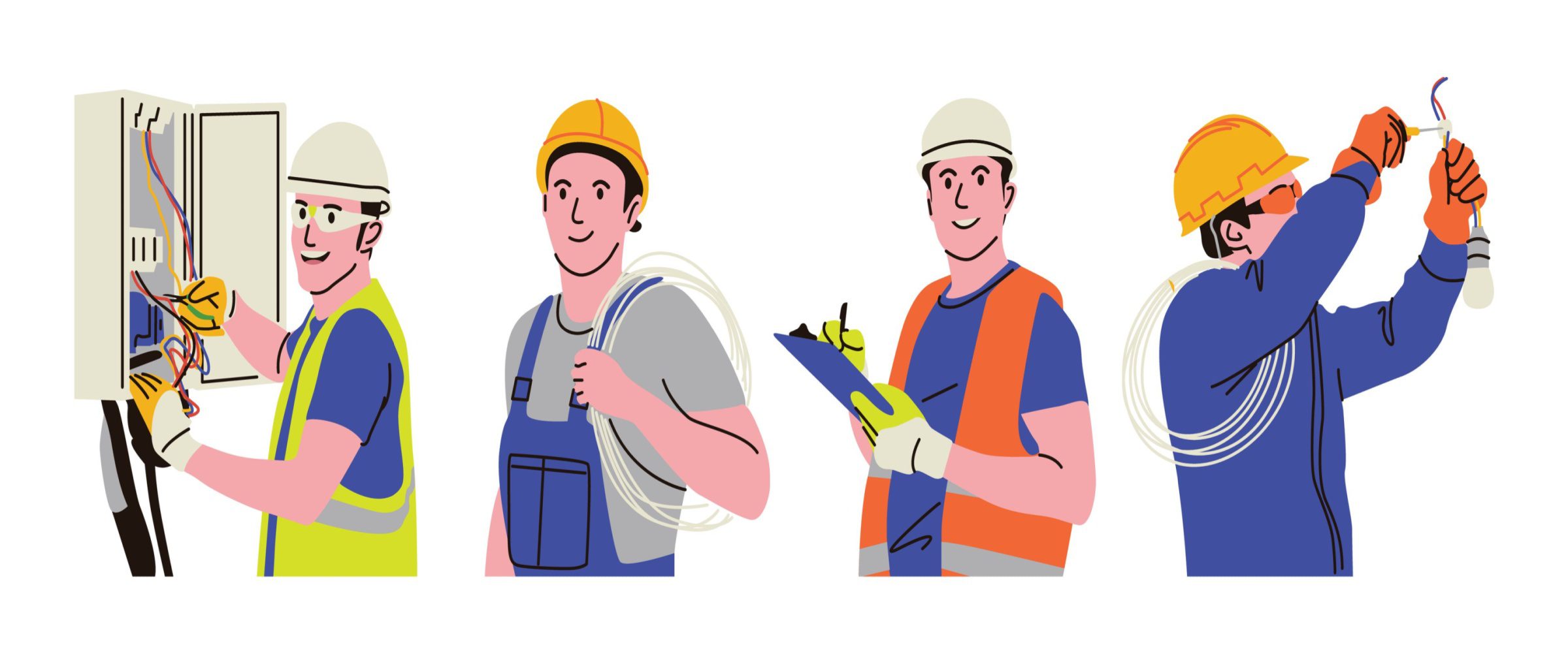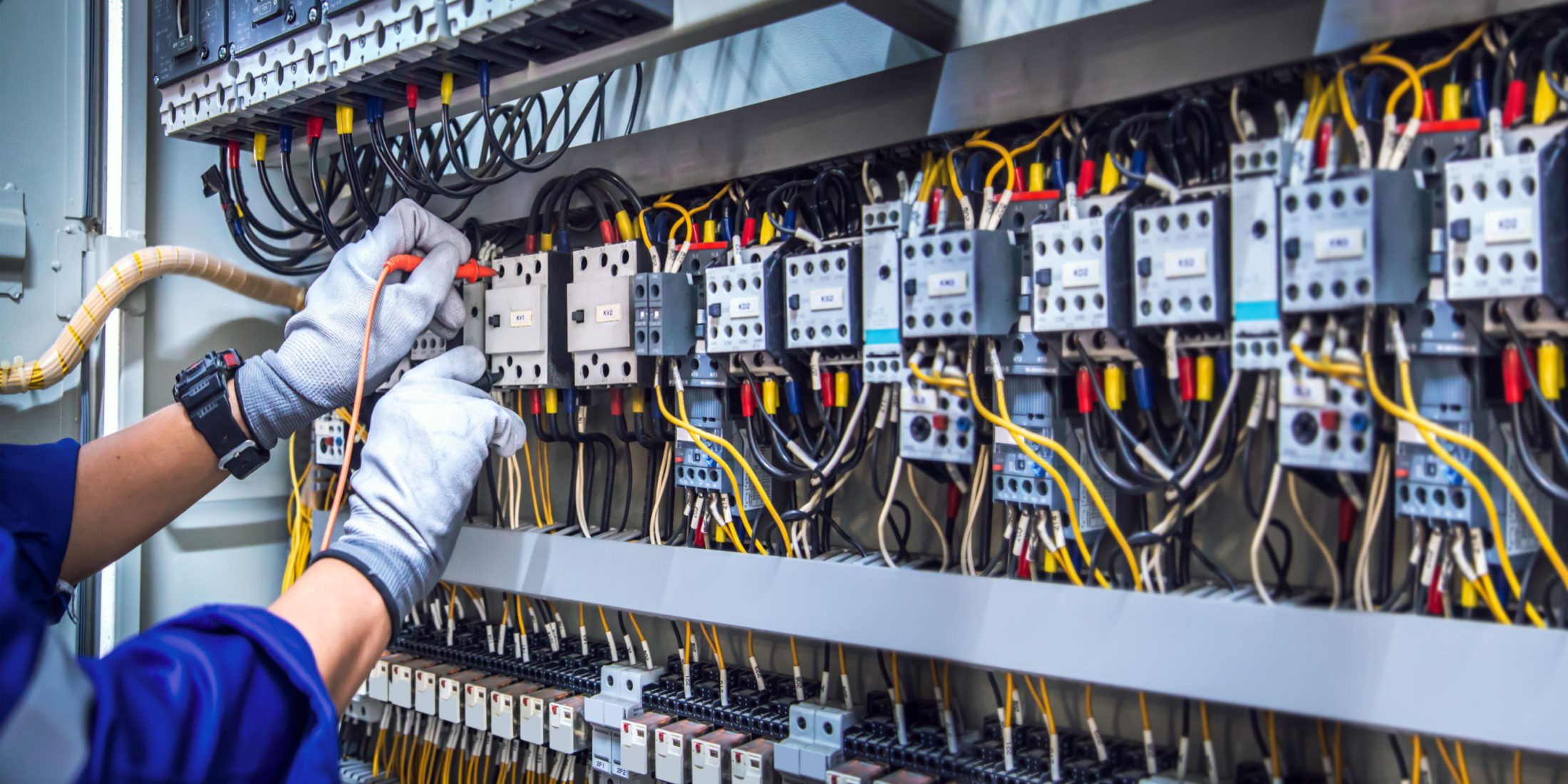Have you ever flipped an electrical switch and wondered how the whole thing works? Or maybe you’re just looking for a stable career with good earning potential. If so, becoming an electrician might be the perfect fit for you! In this blog, we’ll break down the steps you need to take to become a qualified electrician, even if you don’t have any experience with electrical work. This blog will cover everything, from the education you will need to the skills you should develop to land your dream job. So, if you’re ready to light up your future, let’s get started!
Why should you consider becoming an electrician in the UK?
Becoming an electrician in the UK offers numerous benefits. There is a high demand for skilled electricians who provide strong job security and good earning potential. Moreover, the career offers various opportunities to work in residential, commercial, or industrial settings. Electricians can enjoy independence, especially if they are self-employed, and there are clear paths for career progression. The role is hands-on and continually evolving with new technologies, ensuring continuous learning. Additionally, electricians play a crucial role in safety and can contribute to sustainable energy solutions. Thus making it a rewarding and impactful career choice.

How to become an electrician: Qualifications, training, and apprenticeship
Becoming an electrician in the UK involves a combination of education, training, and practical experience. Here’s how you can get started:
Educational Qualifications
GCSEs
Aim for good grades in Maths, English, and Science. These subjects provide a solid foundation for further electrical training.
Further Education
Enrol in a college course related to electrical installation, such as:
- Level 2 Diploma in Electrical Installation (Buildings and Structures)
- Level 3 Diploma in Electrical Installation
Training
Apprenticeships
Apprenticeships combine on-the-job training with classroom learning. Moreover, you’ll work under the supervision of experienced electricians while attending classes at a college or training centre.
- Look for apprenticeships through the National Apprenticeship Service, local colleges, or electrical contracting companies.
- Apprenticeships typically last 2-4 years and cover both practical skills and theoretical knowledge.
On-the-Job Training
During your apprenticeship, you’ll gain hands-on experience working on real projects. This practical training is important for developing the skills to become a competent electrician.
Professional Qualifications
- NVQ Level 3: Complete an NVQ Level 3 in Electrotechnical Services as part of the apprenticeship programme. This qualification shows your practical skills and knowledge in electrical installation and maintenance.
- AM2 Assessment: Pass the Achievement Measurement 2 (AM2) assessment, a practical test that evaluates your competency in performing electrical tasks safely and accurately.
- ECS Card: Apply for an ECS (Electrotechnical Certification Scheme) card. This card proves your qualifications and skills, and it is often required by employers.
Online Courses
Online courses are one of the best ways to get started as a professional electrician. In fact, you can enrol in our School of Health Care’s Professional Electrician Course to gain more insights about electrical skills and knowledge. Moreover, our courses are flexible and effective, making you an expert in this field. Furthermore, we provide 24/7 support for any inconvenience you may face.
Skills you need to become an electrician
Becoming an electrician is not just about having the right qualifications; you also need a variety of skills. Here are some of the key skills you need:
- Understanding of Electrical Systems: You need to know how electrical systems work, including circuits, wiring, and connections.
- Problem-Solving: You must be able to diagnose and fix electrical issues.
- Using Tools: You should be comfortable using various tools like screwdrivers, pliers, and wire strippers.
- Accuracy: It’s important to be precise when installing or repairing electrical systems to avoid mistakes.
- Safety: Always follow safety regulations to protect yourself and others from electrical hazards.
- Manual Dexterity: Good hand-eye coordination to handle small parts and tools.
- Physical Stamina: The job can be physically demanding, requiring you to stand, crouch, and lift heavy equipment.
- Listening and Understanding: You must be able to understand clients’ needs and explain solutions clearly.
- Teamwork: Often, you’ll work with other professionals, so being a good team player is important.
- Professionalism: Always be polite and professional with clients.
- Basic Math: You need basic math skills to measure and calculate electrical loads and requirements.
- Problem-Solving: Use math to figure out the best solutions to electrical problems.
- Willingness to Learn: The electrical field is always evolving, so you need to keep learning about new technologies and methods.
- Adaptability: Be ready to adjust to new tools, regulations, and types of work.

What does an electrician do?
Electricians are skilled tradespeople who work with electrical systems in residential, business, and industrial settings. Here are some of the main tasks they perform:
- Installing Electrical Systems
- Maintaining and Repairing Electrical Systems
- Upgrading Electrical Systems
- Testing Electrical Systems
- Reading Blueprints and Technical Diagrams
- Ensuring Compliance with Regulations
- Providing Customer Service
- Emergency Repairs
What are the types of electricians?
Electricians can specialise in various areas! Here are some popular options:
- Residential Electrician: Keeps the lights on in homes and apartments.
- Commercial Electrician: Brings electrical expertise to businesses.
- Industrial Electrician: Tackles high-power needs in factories and plants.
- Maintenance Electrician: Ensures existing electrical systems run smoothly.
- Low-Voltage Electrician: Works with data and communication systems.
Beyond these core areas, there’s a whole world of specialty electricians focusing on specific fields, like:
- Sound and Lighting Electricians: Concert halls, theatres, and entertainment venues come alive with their expertise in designing, installing, and maintaining sound and lighting systems.
- Solar Panel Electricians: The rise of renewable energy has created a demand for electricians specialising in solar panel installation, maintenance, and repair.
How much does an electrician make in the UK?
Electricians’ salaries vary widely depending on experience, specialisation, and location. On average, electricians can earn between £25,000 to £45,000 annually. Experience, certifications, and the complexity of the work can all impact earnings. Moreover, master electricians and those with specialisations typically command higher salaries.
Furthermore, many electricians enjoy benefits such as health insurance, retirement plans, and paid leave, especially when working for larger companies.
How To Become An Electrician: Conclusion
Electricians perform many tasks that are important to maintaining the electrical systems we rely on daily. From installation and maintenance to repairs and upgrades, electricians ensure that our world stays powered and safe. Moreover, their work is technical, which requires attention to detail and a strong commitment to safety. Furthermore, understanding the diverse responsibilities of an electrician helps us appreciate the vital role they play in our modern society.
If you’re still curious about electricity and want to learn further, consider checking out our Professional Electrician Course.



